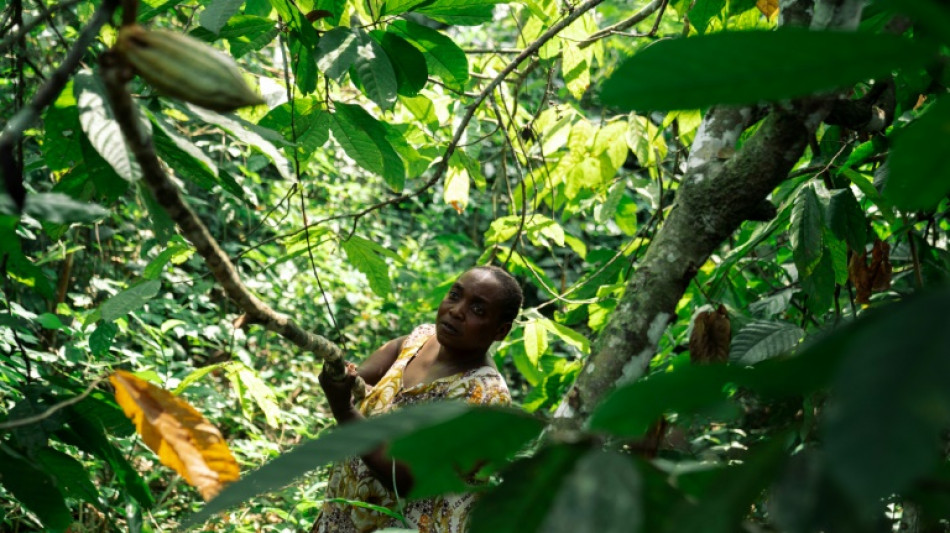
-
 Ex-England star Youngs to retire from rugby
Ex-England star Youngs to retire from rugby
-
Black Ferns star Woodman-Wickliffe returning for World Cup

-
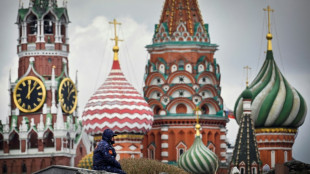 Kremlin warns against rushing Ukraine talks
Kremlin warns against rushing Ukraine talks
-
Mbappe aiming for Copa del Rey final return: Ancelotti

-
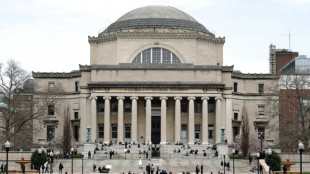 US universities issue letter condemning Trump's 'political interference'
US universities issue letter condemning Trump's 'political interference'
-
Pope Francis's unfulfilled wish: declaring PNG's first saint
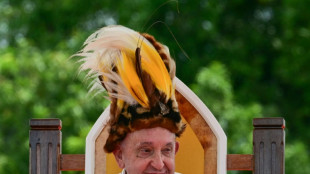
-
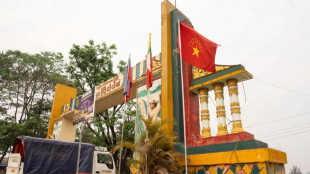 Myanmar rebels prepare to hand key city back to junta, China says
Myanmar rebels prepare to hand key city back to junta, China says
-
Hamas team heads to Cairo for Gaza talks as Israel strikes kill 26
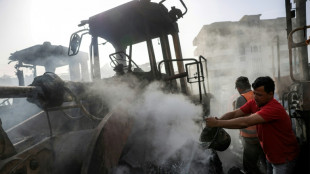
-
 Pianist to perform London musical marathon
Pianist to perform London musical marathon
-
India's Bumrah, Mandhana win top Wisden cricket awards

-
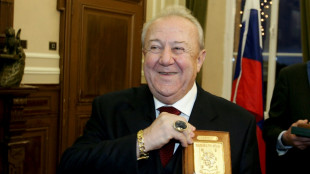 Zurab Tsereteli, whose monumental works won over Russian elites, dies aged 91
Zurab Tsereteli, whose monumental works won over Russian elites, dies aged 91
-
Roche says will invest $50 bn in US, as tariff war uncertainty swells
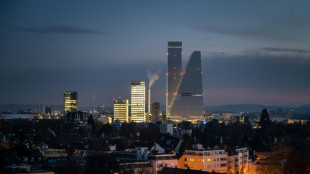
-
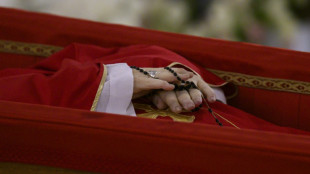 Pope Francis's funeral set for Saturday, world leaders expected
Pope Francis's funeral set for Saturday, world leaders expected
-
US official asserts Trump's agenda in tariff-hit Southeast Asia
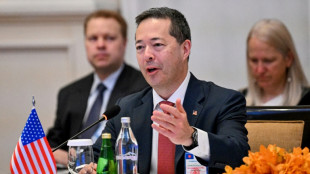
-
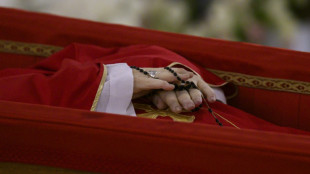 World leaders set to attend Francis's funeral as cardinals gather
World leaders set to attend Francis's funeral as cardinals gather
-
Gold hits record, stocks mixed as Trump fuels Fed fears

-
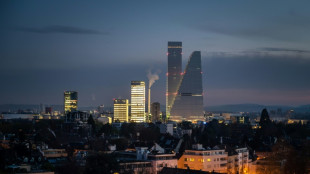 Roche says will invest $50 bn in US over next five years
Roche says will invest $50 bn in US over next five years
-
Fleeing Pakistan, Afghans rebuild from nothing
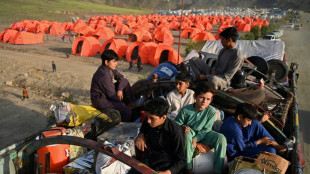
-
 US Supreme Court to hear case against LGBTQ books in schools
US Supreme Court to hear case against LGBTQ books in schools
-
Pistons snap NBA playoff skid, vintage Leonard leads Clippers

-
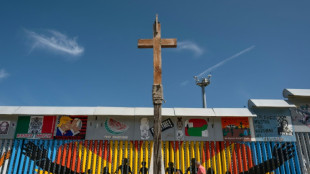 Migrants mourn pope who fought for their rights
Migrants mourn pope who fought for their rights
-
Duplantis kicks off Diamond League amid Johnson-led changing landscape

-
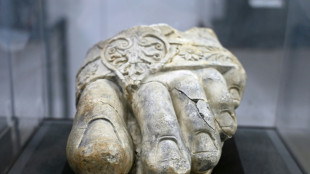 Taliban change tune towards Afghan heritage sites
Taliban change tune towards Afghan heritage sites
-
Kosovo's 'hidden Catholics' baptised as Pope Francis mourned
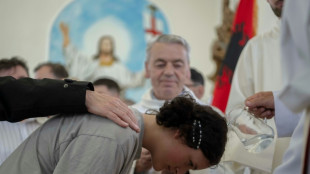
-
 Global warming is a security threat and armies must adapt: experts
Global warming is a security threat and armies must adapt: experts
-
Can Europe's richest family turn Paris into a city of football rivals?

-
 Climate campaigners praise a cool pope
Climate campaigners praise a cool pope
-
As world mourns, cardinals prepare pope's funeral
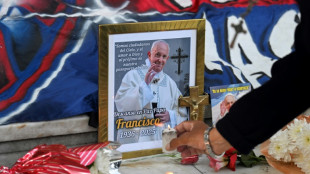
-
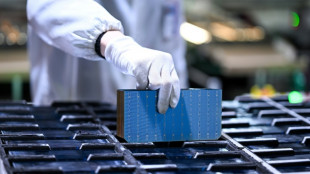 US to impose new duties on solar imports from Southeast Asia
US to impose new duties on solar imports from Southeast Asia
-
Draft NZ law seeks 'biological' definition of man, woman
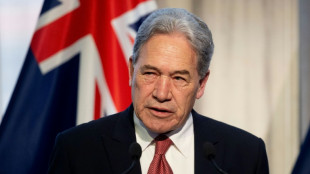
-
 Auto Shanghai to showcase electric competition at sector's new frontier
Auto Shanghai to showcase electric competition at sector's new frontier
-
Tentative tree planting 'decades overdue' in sweltering Athens

-
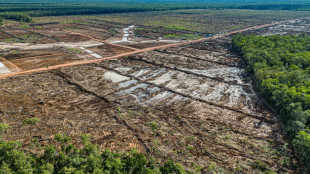 Indonesia food plan risks 'world's largest' deforestation
Indonesia food plan risks 'world's largest' deforestation
-
Gold hits record, stocks slip as Trump fuels Fed fears

-
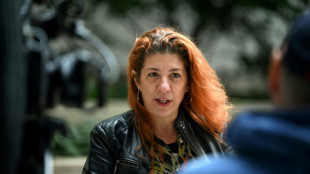 Trump helps enflame anti-LGBTQ feeling from Hungary to Romania
Trump helps enflame anti-LGBTQ feeling from Hungary to Romania
-
Woe is the pinata, a casualty of Trump trade war
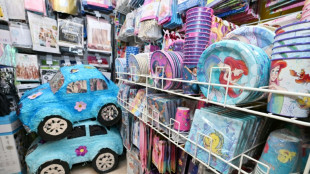
-
 'Like orphans': Argentina mourns loss of papal son
'Like orphans': Argentina mourns loss of papal son
-
Trump tariffs torch chances of meeting with China's Xi

-
 X rival Bluesky adds blue checks for trusted accounts
X rival Bluesky adds blue checks for trusted accounts
-
China to launch new crewed mission into space this week

-
 Morocco volunteers on Sahara clean-up mission
Morocco volunteers on Sahara clean-up mission
-
Latin America fondly farewells its first pontiff

-
 'I wanted it to work': Ukrainians disappointed by Easter truce
'I wanted it to work': Ukrainians disappointed by Easter truce
-
Harvard sues Trump over US federal funding cuts

-
 Brightline Interactive Successfully Delivers First Full-Motion Immersive Simulator to the U.S. Navy
Brightline Interactive Successfully Delivers First Full-Motion Immersive Simulator to the U.S. Navy
-
Amaze Expands Teespring Marketplace with Premium Lifestyle Fashion from Digital Brands Group, Inc.

-
 Trifecta Gold Announces Fully Subscribed $5.3 Million Private Placement with Lead Order from Crescat
Trifecta Gold Announces Fully Subscribed $5.3 Million Private Placement with Lead Order from Crescat
-
Don't Miss the April 30 Deadline: Prepare Q1 2025 Form 941 Filing with Tax1099

-
 CBD Life Sciences Inc. (CBDL) Announces Groundbreaking 100MG Full Spectrum CBD Gummy Geared Toward Mental Health & Focus
CBD Life Sciences Inc. (CBDL) Announces Groundbreaking 100MG Full Spectrum CBD Gummy Geared Toward Mental Health & Focus
-
Medisafe Launches VIA: AI Voice Tech That Supercharges Patient Engagement and Slashes Enrollment Friction
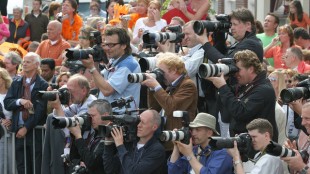

Armed groups covet cocoa in eastern DR Congo
Despite the risks from deadly armed groups roaming the countryside, Judith Kahindo walks alone every day to her isolated cocoa plantation in the war-torn North Kivu region of the eastern Democratic Republic of Congo.
North Kivu is primarily rich in coltan and other minerals that have fuelled the fighting that has ravaged the region for the last three decades.
Vast areas have been seized by the M23 rebel group in a lightning offensive since January including the capital Goma.
But further north in Beni, cocoa, whose prices have soared on the world market in the last two years, also stokes the violence.
Massacres committed by the Allied Democratic Forces (ADF) rebels, who have pledged allegiance to the Islamic State group, have left thousands dead and prevented cocoa farmers from accessing their plantations for years.
"We tend our fields with the fear of being massacred because cocoa is so coveted, whether by the rebels or even our soldiers," said Kahindo, a widow with eight children, as she hacked her way through a tangled forest with a machete.
Cocoa production across the DRC remains relatively marginal, just over one percent of global production.
- Smuggling -
But that is still enough to attract the attention of various armed groups in Beni who fuel smuggling networks to neighbouring Uganda, according to those involved in the sector.
"If there wasn't cocoa in abundance in Beni, the war would already have finished," said Kahindo.
The ADF are not the only threat to people in the area.
"There are people who are taking advantage of the terror caused by the ADF to steal," said Colonel Mak Hazukay, the Congolese army spokesman in the area.
Even before the emergence of the ADF in the 2000s, the region was already plagued by attacks from the "sangabalende" –- criminal groups that specialised in cocoa theft and smuggling, said Richard Kirumba, Beni civil society president.
Kirumba also said that some Congolese soldiers deployed to protect people from the ADF actually tax cocoa traders or loot abandoned fields.
Stolen cocoa is often trafficked through cross-border smuggling networks.
"The criminals sell the cocoa as it is. They just cut it, remove the husks that protect the beans and then sell it directly," said Frank Ndinyoka Kabeya, a cocoa buyer and a member of the Union of Traders of Agricultural Products in Congo.
Unwary buyers risk being stopped by police. But checks are lax in a country where corruption is endemic, according to NGO Transparency International.
On Beni's streets cocoa beans heaped on tarpaulins can be seen drying in the sun and are mainly sold to "small buyers", circumventing certification processes, said Karim Sibenda, an agricultural engineer at a local chocolate factory.
- Organic -
At the National Office of Agricultural Products of Congo (ONAPAC), which is responsible for certifying the quality and origin of cocoa for export, there is a buzz of activity during the harvest season.
Tonnes of beans with a vinegary scent are piled up in the warehouse, where employees fill and stamp canvas bags destined for export.
Company employee Agee Mbughavinywa, who buys and certifies agricultural products, said cocoa producers are identified by a code to ensure traceability.
The bags of cocoa beans are then mainly exported to Uganda, like other agricultural goods in the region.
Since the end of 2021, the DRC authorised Ugandan troops to operate in the region and fight the ADF alongside the Congolese army.
Their presence has been vital in securing vital trade routes and increase exports, ONACAP said.
But this rapprochement between Kinshasa and Kampala has sparked fears in the cocoa market.
"Ugandan buyers are destabilising the sector, they come with cash in hand and impose their prices on producers," said ONACAP's Beni director.
"They don't look at the quality, they take everything and export it under a Ugandan label, this is hampering the country's economy," she said.
In Beni, traditional farming methods and particularly fertile soil allow for the production of organic cocoa.
But the violence is also threatening its organic status. The European Union recently threatened to no longer recognise the label on local products, as insecurity prevents certification by inspectors.
Industry stakeholders fear that could encourage fraudulent exports of Congolese cocoa as Ugandan.
D.Cunningha--AMWN